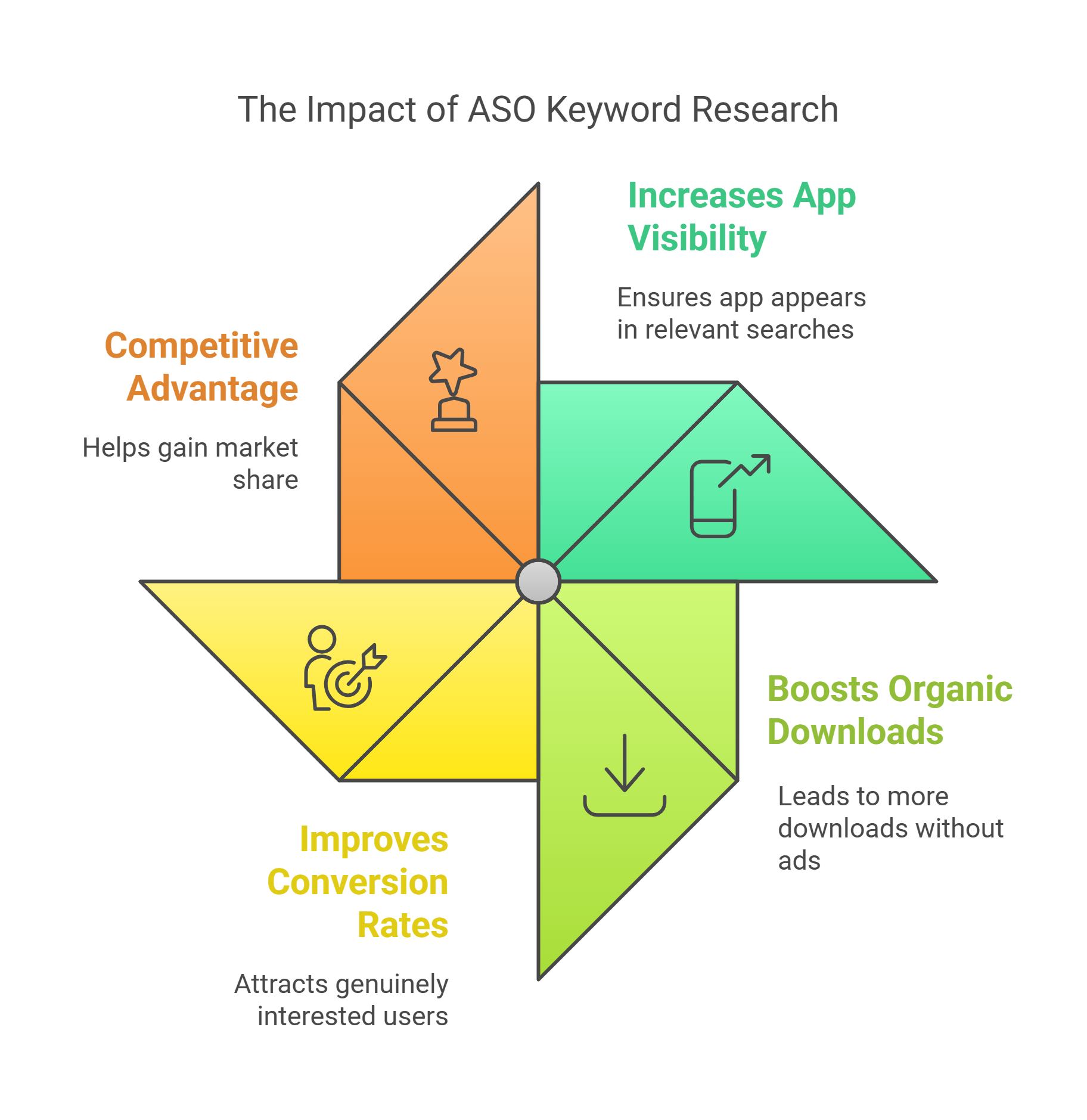In the competitive world of mobile applications, standing out in app stores is a major challenge. With millions of apps available, the key to driving organic traffic lies in ASO keyword research. App Store Optimization (ASO) is the process of optimizing an app to rank higher in app store search results, and keyword research plays a critical role in making your app discoverable to potential users.
This comprehensive guide will help you understand ASO keyword research, why it matters, how to conduct it effectively, and advanced strategies to improve your app’s visibility. By the end of this guide, you will have a deep understanding of how to select the best keywords for your app and boost its rankings organically.
What is ASO Keyword Research?
ASO keyword research is the process of identifying and selecting the most relevant search terms that users enter in app stores when looking for apps. The right keywords help an app appear in top search results, increasing visibility, downloads, and revenue.
Just like SEO (Search Engine Optimization) is used for websites, ASO keyword research is used for app store listings. When done correctly, it enhances the likelihood of an app ranking higher and being discovered by the right audience.
Why is ASO Keyword Research Important?
- Increases App Visibility: A well-optimized keyword strategy ensures your app appears when users search for relevant terms.
- Boosts Organic Downloads: Higher visibility leads to more app downloads without spending money on ads.
- Improves Conversion Rates: Targeting the right keywords ensures you attract users who are genuinely interested in your app.
- Competitive Advantage: Outranking competitor apps helps gain market share in a crowded marketplace.

How to Conduct Effective ASO Keyword Research
To maximize your app’s performance, follow these step-by-step methods to identify the best keywords:
Step 1: Brainstorm Relevant Keywords
Start by listing down potential keywords that describe your app’s functionality and purpose. Think from the perspective of your target users what would they type into the search bar to find an app like yours?
- Focus on app features and functionalities
- Think of common user search queries
- Include synonyms and related phrases
Step 2: Analyze Competitor Keywords
Competitor analysis helps in understanding which keywords are working for similar apps in your category.
- Identify top competitors in your niche.
- Analyze their app store descriptions, titles, and subtitles.
- Extract keywords they are ranking for and evaluate their performance.
Step 3: Use App Store Auto-Suggestions
Both Google Play Store and Apple App Store provide auto-suggestions when users type queries in the search bar. Utilize this feature to discover trending keywords relevant to your app.
Step 4: Consider Long-Tail Keywords
Long-tail keywords are more specific search phrases that often have lower competition and higher conversion rates.
For example:
- Instead of “fitness app,” use “home workout fitness app for beginners.”
- Instead of “photo editor,” use “AI-powered photo editor for professionals.”
Step 5: Evaluate Keyword Search Volume and Difficulty
- Search Volume: Determines how often a keyword is searched.
- Difficulty Score: Indicates how hard it is to rank for a particular keyword.
- Relevance: Ensures the keyword aligns with the app’s core functionalities.
Step 6: Test and Track Keyword Performance
Once you have chosen your keywords, monitor their impact on app rankings and tweak them periodically for better results.
Advanced ASO Keyword Strategies
For developers looking to take their ASO keyword research to the next level, here are some advanced tactics:
1. Leverage User Reviews for Keyword Ideas
Analyze user feedback to discover terms that real users are using to describe your app.
2. Use Trending and Seasonal Keywords
Identify trending searches related to your app’s category and incorporate them strategically.
3. Optimize for Voice Search
With the rise of voice assistants, optimize for conversational and natural-sounding search queries.
4. Monitor Keyword Rankings Continuously
Track keyword rankings over time and adjust your strategy based on performance metrics.
Conclusion
ASO keyword research is an essential part of app store optimization, helping apps rank higher, attract more users, and increase downloads organically. By selecting the right keywords, placing them strategically, and continuously monitoring performance, you can improve your app’s visibility and success in the competitive app marketplace.
Applying these ASO keyword research strategies will set your app apart and ensure a steady flow of organic traffic, ultimately leading to better engagement and growth. Start optimizing today and take your app to the next level!